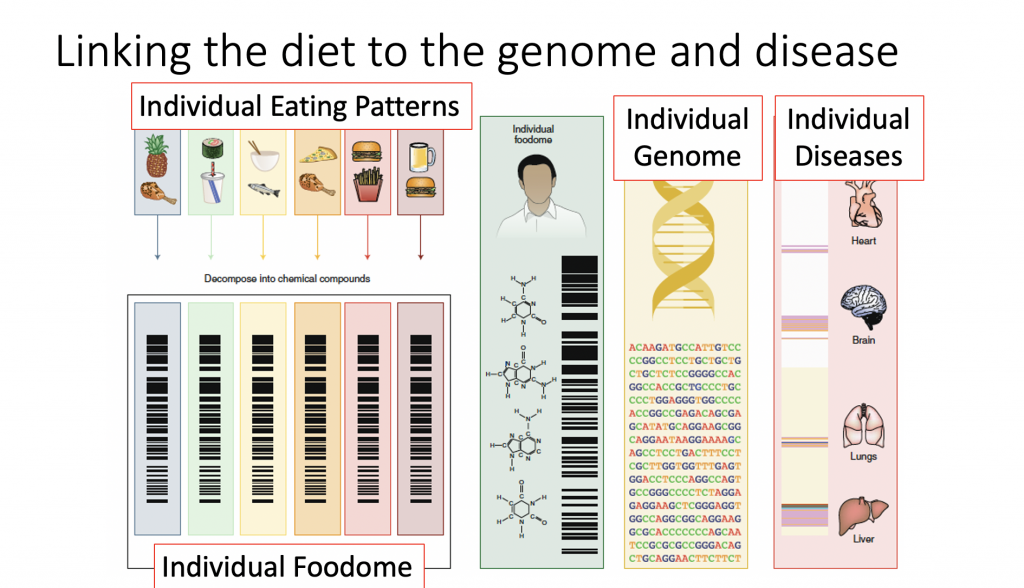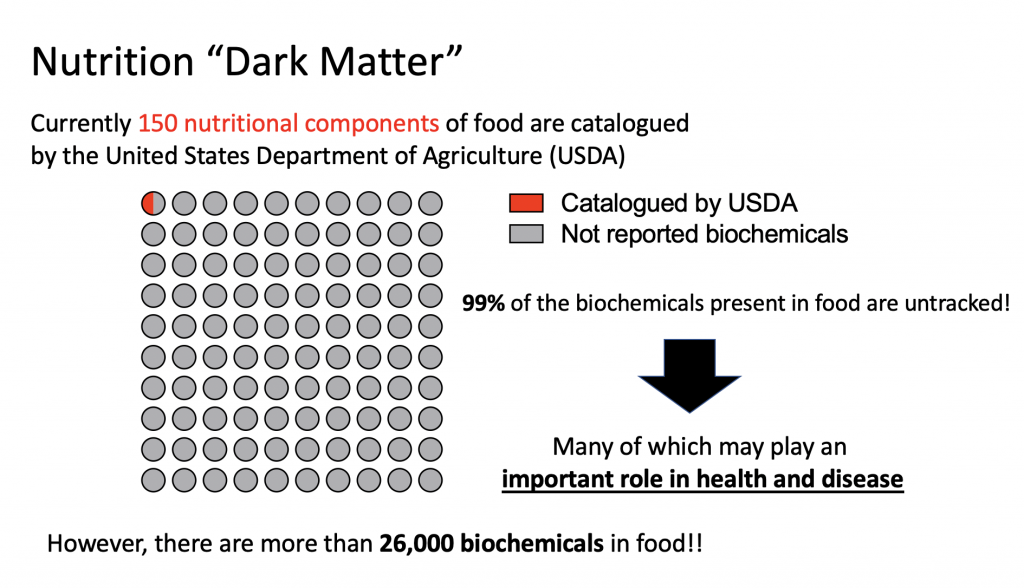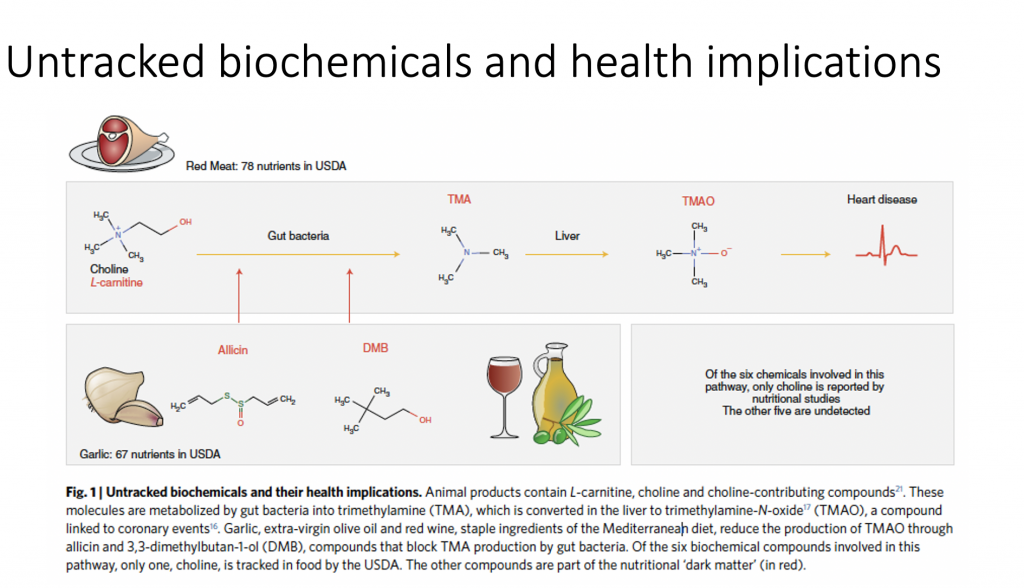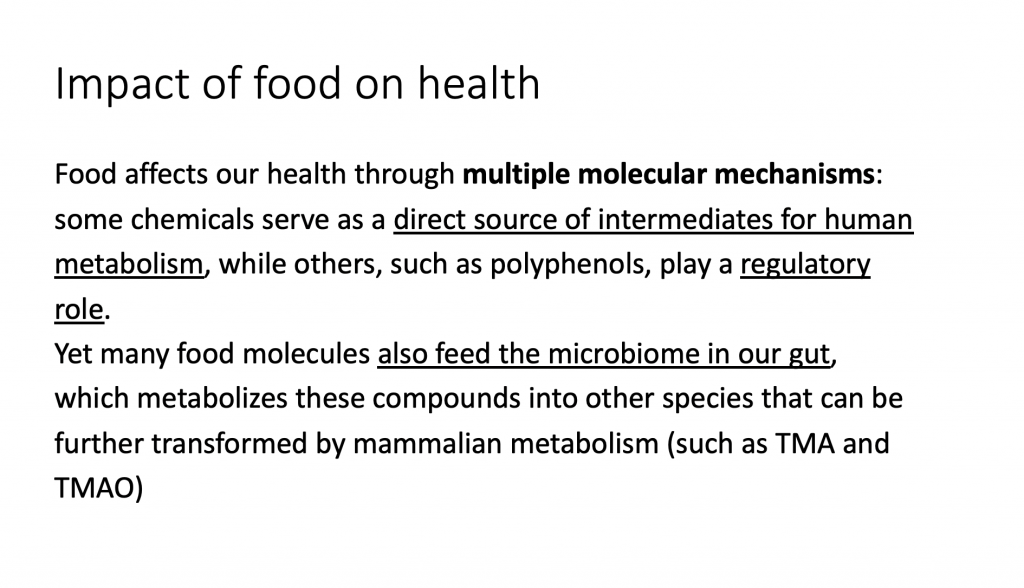Interesting review entitled The unmapped chemical complexity of our diet by Albert-Laszlo Barabasi, Giulia Menichetti & Joseph Loscalzo
Nature Food volume 1, pages33–37(2020)
Abstract
Our understanding of how diet affects health is limited to 150 key nutritional components that are tracked and catalogued by the United States Department of Agriculture and other national databases. Although this knowledge has been transformative for health sciences, helping unveil the role of calories, sugar, fat, vitamins and other nutritional factors in the emergence of common diseases, these nutritional components represent only a small fraction of the more than 26,000 distinct, definable biochemicals present in our food—many of which have documented effects on health but remain unquantified in any systematic fashion across different individual foods. Using new advances such as machine learning, a high-resolution library of these biochemicals could enable the systematic study of the full biochemical spectrum of our diets, opening new avenues for understanding the composition of what we eat, and how it affects health and disease.
Few interesting points below:
Over 99% of all biochemicals in food are not catalogued by USDA (only 150 out of >26K). Major limitation in the interpretation of nutritional studies. See the proportion of biochemicals on the graph below.
Potential impact is well illustrated on the below example. TMAO has been linked to cardiac events though only one out of 6 important biochemical components of its metabolism is reported on nutritional studies.
Major potential impact of better characterization of food content is on the prediction of disease development when linked to the genetic information.

Below how food may impact health through multiple different mechanisms:
Read full article here: The unmapped chemical complexity of our diet



